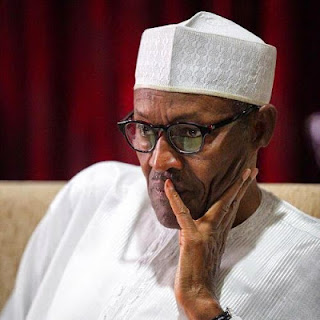Written by the Editorial Board of The Guardian Newspaper
This chronicle of events should not just be of interest to all Nigerians, it should make the debate on their current harrowing living more feverish: Budget and Planning Minister Udoma Udo Udoma on September 15 told a cabinet retreat on the 2016 Budget which attracted 234 participants that the President’s Economic Management Team had proposed a fiscal stimulus initiative for the country to spend its way out of the present economic recession via a “plan to generate an immediate large injection of funds principally in foreign currency estimated at US$10 – $15 billion into the economy through asset sales, advance payment for licence renewals, infrastructure concessioning, use of recovered funds, etc, to reduce the funding gap.” The National Economic Council met on September 22 and “expressed support for the plans and proposals of the Federal Government to steer the country out of recession.” Before emotions over-ride reason, however, there are more important points to ponder. There have been many missteps by the Muhammadu Buhari administration!
The federal administration attributed the final fall into recession to the sharp fall in foreign currency receipts due to low crude oil prices and disruptions of oil and gas production by militants in the oil fields. But that is only half-true considering the militants beforehand threatened to “crumble the economy” if their demands were not met. They subsequently proceeded gradually to stop the flow of gas to the electricity generating plants and cut off supply of crude oil to the NNPC refineries whose output, according to the Petroleum Minister of State, had begun to rise at the time. While the domestic energy supplies deteriorated, the Buhari administration simultaneously reduced total volume of imported petrol by 78 per cent from May/June 2015 to May/June 2016 on the altar of curbing pressure on external reserves.
Cognizant of the fact that energy consumption level is indicative of the intensity of economic activity, Buhari bears the major blame for precipitating the economic recession by both delaying interminably to dialogue with the militants and starving the economy of imported petrol, diesel and kerosene by turns.
Worse still, Udoma betrays a lack of understanding of the composition of a country’s external reserves as well as a market reflective exchange rate mechanism by celebrating at the retreat the plunging value of the naira since mid-June for bringing about “exchange rate gains (this actually represents money illusion) and an increase in naira proceeds in funding the 2016 budget thus helping us pay salaries and keep the state running” in total oblivion of the associated shooting inflation and dwindling effective demand.
Now, a more monumental economic misstep is the new plan to tie exit from the present recession to selling off some national assets for foreign currency under terms that possibly contain “repurchase options which will make provision for buy-back of those assets when the situation improves.” This novel forex-denominated self-destruct budget financing strategy of “sell profit-making assets cheap now and repurchase them dear later” not only runs counter to government’s economic mandate enshrined in Section 16 of the 1999 Constitution (as amended) but also represents a lame excuse for the failure that the administration expects from its inept management of the economy. Not a single national asset should be sold under such a pretext, which froths with intentions to transfer thriving national assets to cronies and foreign patrons of the present federal administration.
Nonetheless, it should be realised that Nigeria’s is a mixed economy where enterprises wholly or partly owned by government should complement private businesses in the overall national interest. The Federal Government should retain and make its enterprises function efficiently. Instructively, Nigerians have had some experience in sale, privatisation and concessioning of government enterprises with mixed results that largely verge toward the unpalatable. What is required is for government to learn from the previous exercises to draw up rules for a transparent and equitable disposal of any assets adjudged to be obsolete or surplus to government business at a fair price as and when necessary or as a matter of routine.
In the search for revenue to finance the budget, the Federal Government would have over N1trillion at its disposal by repudiating over 90 per cent of the purported national domestic debt, which is made up of mopped but sterilised excess liquidity funds that were not expended or invested. To help it to exit the economic recession and ensure eventual sustainable growth, the Federal Government should cut off such avenues for freeloading.
(adsbygoogle = window.adsbygoogle || []).push({});


